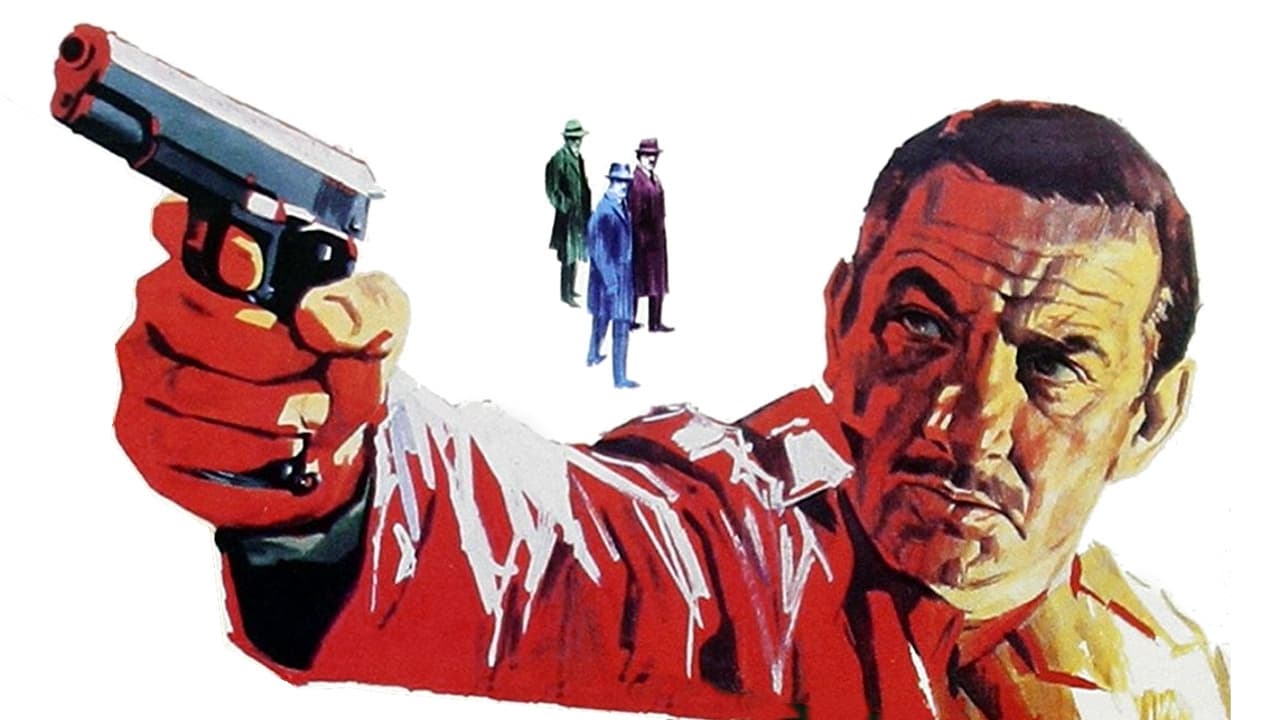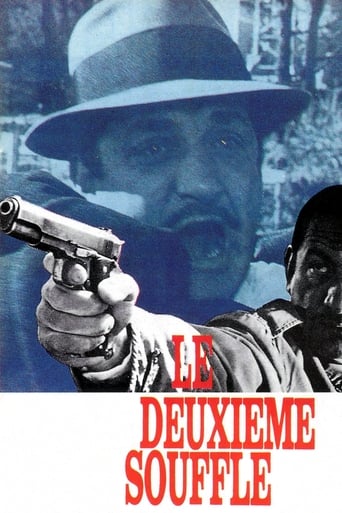



Really Surprised!
everything you have heard about this movie is true.
View MoreClose shines in drama with strong language, adult themes.
View MoreIt is a whirlwind of delight --- attractive actors, stunning couture, spectacular sets and outrageous parties. It's a feast for the eyes. But what really makes this dramedy work is the acting.
View MoreA middle-aged gangster with the deceptively nice and normal name of Gustave (or "Gu") escapes from prison and returns to his habitual environment, to wit the environment of heavy-duty professional crime. He arrives bang in the middle of a gang war involving a number of old friends, enemies and frenemies. Gu is about to become both actor and pawn in a series of elaborate cat-and-mouse games pitting gangsters against police and gangsters against gangsters.An excellent movie, both elegant and incisive, with a prize cast and prize performances. I don't know if it's realistic - kind Fate has kept me far, far from the world of French gangsterdom - but it certainly feels and sounds realistic : one gets a genuine sense of watching people for whom serious violence is not only a career, an heritage and a belief system, but also an automatic mindset. The atmosphere hangs as heavy as cigarette smoke and the dialogues are so sharp that you could use them to cut your hair. The sets and locations have been chosen with enormous care, conjuring up visions of prosperous yet tacky nightclubs, near-convincing imitations of "bourgeois" respectability or once happy family homes turned into hiding places for criminals on the run, like women of a good background fallen upon hard times and forced into street-walking.Riveting, addictive viewing.
View MoreI'll start with a quote from Alphonse Boudard, regarding the tendency to make crime films like Greek tragedy: Melville wants to remake the Atreidae among criminals. He means that these stories of desperate men settling scores between themselves in the bloodiest fashion possible (I lost count of the corpses in this picture) can't carry the weight of classical tragedy. The excessive length of the film (Le Samourai clocks in at 100 minutes, Un flic at 94--these stories are not much less complicated than Deuxieme souffle), means there must be scenes that drag on, until the dramatic effect is totally lost. The platinum heist seems to last forever, and it is meant to be the one big suspense moment.The actors don't do well in general. Pierre Zimmer, playing Orloff, is given silly lines about what he has to do with Gu, if there's betrayal, but he comes off so stiff you want to fast-forward through his scenes. Lino Ventura acts well, has lots of charisma, but looks old--and his age is commented on by the younger thugs. Christine Fabrega is so terribly stiff and sculptural, you wonder how she was hired to play Manouche. It seems Simone Signoret was intended for the part, but dropped out--a great pity. Signoret would have delivered the vitality and strength that are so conspicuously lacking in Fabrega. There's only one stand-out performance: Paul Meurisse is so elegant and smart as Blot that the story takes off every time he comes into the frame. If you have seen Les Diaboliques, you'll know how good he is.The camera work is mediocre; a washed-out b/w that looks more like television than Melville's great pictures of the 50's. Le deuxieme soufflé is one of the lower points in this man's output.
View MoreWhat I find is that a great film of great length, whether slow paced or not, is life a sheep in wolf's clothing. However intimidating a run time may look, the greats go by quicker than many 90 minute efforts. Whether it's Solaris(1972) and Andrei Rubev(1966) in just short o9f 3 hours, or Seven Samurai(1954) and Godfather II(1974) in excess of 200 minutes, there films to me never feel their length and always justify it. While many have commented on "Second Wind" (using the English title for simplicity's sake) running time, rest assured, it too is deceptive.The film opens abruptly into the finale of an escape sequence from prison, giving no breathing room as you are thrown into the action. One man dies but the other two make it out, as we go to an atmospheric opening credits sequence of the two running through the forest, with little to no music. Only one of the escapees is of concern to us, Gustave Minda (regularly called Gu), put behind bars for a train robbery gone wrong. He comes back to his old stomping grounds, rescuing his sister and loyal friend from a pair of thugs. Their murder further brings heat down on him in a case led by Blot, a wise cracking but crafty inspector. Many plot points are running intersect, including a battle over the cigarette business and the forming of a heist, the latter of which Gu is drawn into in order to have some money when he leaves the country. While there are a lot of characters and going ons to keep track of, as long as one is paying attention, following along is simple, as Melville masterfully brings these plot points together.This is a dialogue and character heavy movie, making it more similar to "Bob the Gambler" (1955) than "Le Samurai(1967). While maybe not as snappy as Godard, or Tarantino for a more modern example, Melville's films were always strong in dialogue, and this is no exception. This movie is composed of a string of home running scenes. Whether it's humorous, like inspector Blot's sarcastic rant on the unwillingness of a restaurant's employees and customers to comment on the shooting that had occurred, or serious, such as a trio of gangsters confronting a man they believe set them up, there are no wasted scenes or dull moments, whether five minutes or twenty. There's nothing here story wise that is of particularly new ground: a noir style fatalism, a police force as corrupt as the criminals they pursue, political intrigue and betrayals, however it doesn't matter. Originality is welcome but not necessary in anything, and here we see these familiar threads executed with such enthusiasm, backed by strong performances all around, that it hardly matters whether one has seen these things before. If there is one possibly original aspect, it is in it's ending which I won't spoil here. It's a small, but important moment, and much like his follow up "Le Samurai"(1967), widely open to interpretation.Melville is known for his awesome visuals and mood, and this is no exception. His love of noir is apparent in the perfectly dark lighting, combined with an often minimal soundtrack that aids in creating a mood of dread in many scenes. This is actually a much more subdued effort for Melville in that regard, but it works here as the focus is much more on story and characters.Not to be missed for fans of crime films.
View MoreI saw this at London's National Film Theatre last night and I must admit to being more than a little bit disappointed. This appears to mark the turning point where Melville lost all real interest in character (after the wonderful Le Doulos and the underrated L'Aine Des Ferchaux) and turned his attention to set piece robberies and shoot outs. The problem is, that this is still a long and wordy script, with an awful lot of very pointless talk, connecting up some visually excellent scenes. The highlight of the film, the hijack of an armoured car on a deserted mountain road, foreshadows the action techniques -shaky camerawork, fast cutting - used by Ridley Scott in Black Hawk Down, Gladiator and Hannibal; unfortunately it's over in seconds. There are other great scenes, but dramatically they lead nowhere. For example, one gangster scouts the site of an intended meeting, works out where he might be standing when there's trouble, and hides a gun nearby. When he leaves, an adversary comes into the room, goes through the same thought processes, and finds and removes the gun. But the scene never pays off, as the first gangster never ends up reaching for the missing weapon. Performance wise two people stand out - Paul Meurisse as the compassionate, intelligent and very, very funny Inspector Blot, and Pierre Zimmer as Orloff, the gangster who serves as the moral touchstone for his peers.About three quarters of the way through the film turns from an escaped convict and heist movie into the story of a man trying to prove that he hasn't been a police informer/collaborator. As with a lot of Melville's gangster vs police movies (a big favourite with the French) you can't help feeling that he's really dealing with the issue of wartime resistance to the German occupation. To my mind, though, Melville seems more interested in shoring up the myth of resistance rather than dealing with the truth (as Louis Malle tried to in Lacombe, Lucien, resulting in his effective exile from France for the rest of his life).The scene where Paul is interrogated by the police was apparently edited at the insistence of France's censors to remove the scenes of water being poured down his throat. What remains is a very obviously edited scene which doesn't work.Anyway, not an awful movie, but a messy one. Can't help feeling that maybe Melville got interested in something else and couldn't be bothered to finish it properly.Fell asleep twice.
View More